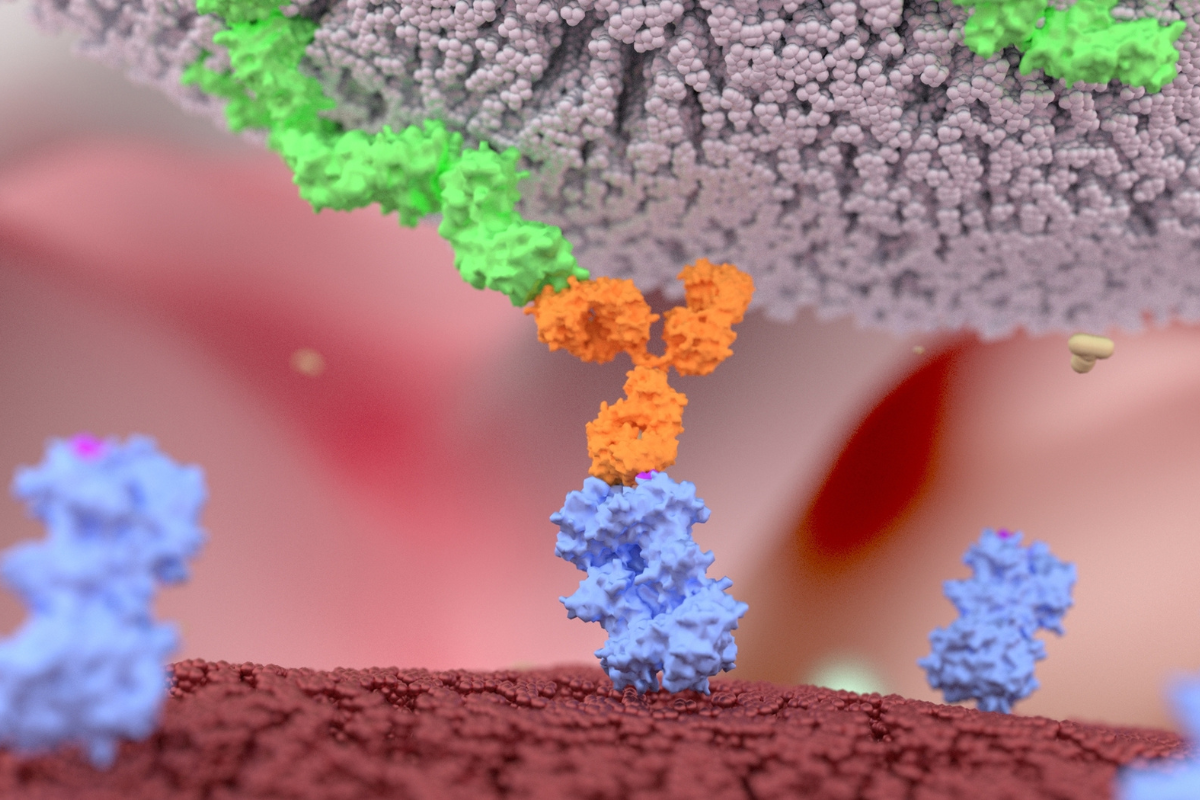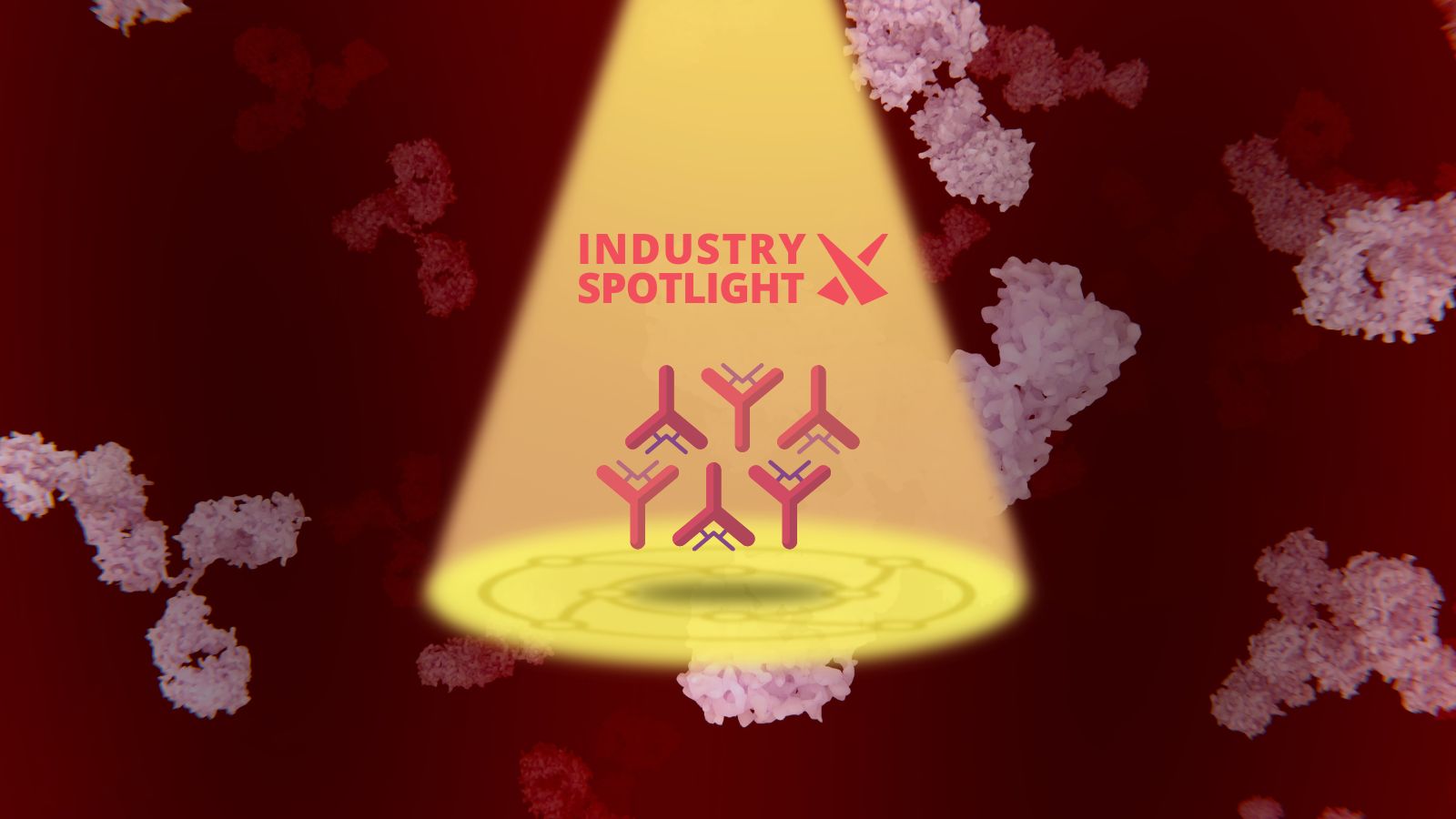A New Cancer-Killing Bispecific Antibody Working Toward the Clinic in 2022

Joining us on day one of our Biologics UK 2021 conference, Principal Scientist Dr Anette Sundstedt of Alligator Bioscience gave a presentation to Oxford Global. In the presentation, Dr Sundstedt talked about Alligator Bioscience’s joint development project with Aptevo Therapeutics for cancer immunotherapy. The new drug, ALG.APV-527 is a 4-1BB and tumor-binding bispecific antibody. 4-1BB has the ability to stimulate the immune cells (anti-tumor specific T cells) involved in tumor control, making 4-1BB a particularly compelling target for cancer immunotherapy.
Potential for Enhanced Potency and Safety
The new drug targets the antigen 5T4, which is expressed in several solid tumour malignancies but has minimal expression in normal tissue. This gives ALG.APV-527 the potential to treat solid tumour indications such as non-small cell lung cancer, head and neck cancer, mesothelioma and others. As an immune cell engager, ALG.APV-527 also targets the costimulatory receptor 4-1BB to activate tumour specific T cells and NK cells in the tumour microenvironment. Importantly, the opportunity to reactivate exhausted tumour specific T cells provides an opportunity to address a key need in immuno-oncology. ALG.APV-527 enhances the function of these immune cells only when in the presence of 5T4 expressing tumour cells, which Dr Sundstedt says “is meant to limit systemic immune activation and liver toxicity which has been observed with other 4-1BB agonistic antibodies.”
Previous antibodies that target 4-1BB receptors have struggled with the balance between effectiveness and toleration in the human body. Urelumab, another 4-1BB targeting cancer immunotherapy, was discontinued in phase II trials due to its liver toxicity in doses above 0.3 mg/kg and poor efficacy below that dose. Its contemporary, utomilumab, had the opposite problem; while well tolerated, its biological activity was lacking. ALG.APV-527 was designed to solve these issues and the preclinical data package strongly suggests that this has been achieved. “So far ALG.APV-527 has demonstrated potent anti-tumour effects as well as a good safety profile in pre-clinical settings,” said Dr Sundstedt.
In vivo Pre-Clinical Evaluations
Dr Sundstedt’s presentation also outlined the findings of in vivo pre-clinical experiments trialling the new drug. The experiments were conducted in tumour models where it was clearly demonstrated that ALG.APV-527 successfully targeted 5T4 expressing tumours.
Experiments also tested the memory response of the immune system after tumour rejection induced by ALG.APV-527 treatment. The memory response was found to induce a broad anti-tumour response as it was found to eradicate both 5T4 expressing and non-expressing tumours, which is in line with the mode of action of the drug and indicates that tumour specific T cells has been (re)-activated by the treatment.
ALG.APV-527 was also tested in comparison to urelumab to assess the toxicity of the new drug. Their findings showed that high doses of urelumab resulted in systemic T cell activation, ulcerative dermatitis, and liver inflammation, while high doses of ALG.APV-527 did not present these effects.
Plans for 2022 Development
Alligator and Aptevo, in their press release on November 12, 2021, announced that ALG.APV-527 is advancing toward the submission of an IND to the U.S. Food and Drug Administration and the initiation of phase I clinical trials. The study will plan to enrol patients with solid tumour malignancies that are likely to express 5T4. The design of the trial will allow to assess safety, pharmacokinetics and preliminary antitumour activity of escalating doses of ALG.APV-527. Additional details of the trial have not yet been finalized.
About ALG.APV-527
ALG.APV-527 is a bispecific antibody with an interesting compound profile and has demonstrated effective cancer-cell killing in pre-clinical models with tumours expressing 5T4. Although still in pre-clinical stages, Alligator Bioscience and Aptevo Therapeutics are planning to advance ALG.APV-527 into clinical trials later this year. The in vivo studies so far show promise and suggest a differentiated profile compared to previous 4-1BB monoclonal antibodies. The phase I clinical trial of ALG.APV-527 will not only assess safety but also determine the dosing regimen as well as exploring activity in several tumour indications likely to express 5T4.
To track more clinical developments in bi-specific antibodies, check out more articles from the Biologics content portal or consider coming along to our Biologics UK conference.





